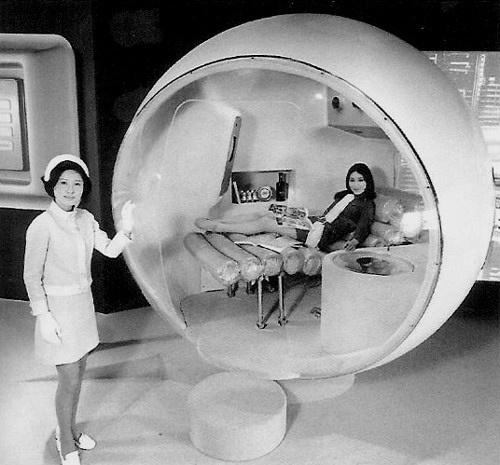Like most aspiring trillionaires, Peter Diamandis would like to live forever. Who can blame him? In a PC Magazine interview conducted by Evan Dayhevsky, the utopian futurist and author of Bold explains why he believes a small number of trillionaires plus a highly automated society won’t equal bloody revolution. An excerpt:
PCMag:
You’ve mentioned in previous media appearances that in the not crazy distant future, we may see the first trillionaires.
Peter Diamandis:
So, we’re at a point now when we’re starting to take on the world’s biggest problems and biggest opportunities. I have two ventures that are big and bold and which I talk about in detail in the book: the first is Planetary Resources. Think about everything that we hold of value here on Earth—metals, minerals, energy, real estate—they are in near infinite quantities in space. You know, some of the asteroids that we [Planetary Resources] are targeting to prospect are trillion-dollar assets. So, that’s one place where we might see the first trillionaires made, and, you know, I’m taking my shot at it.
The second place is in the life sciences. My other company I speak about in Bold is a company I co-founded called Human Longevity, Inc (HLI). Today there are six to seven trillion dollars a year spent on healthcare, half of which goes to people over the age of 65. In addition, people over the age of 65 hold something on the order of $60 trillion in wealth. And the question is what would people pay for an extra 10, 20, 30, 40 years of healthy life. It’s a huge opportunity. These are areas where we may see significant wealth creation.
PCMag:
One of the things you don’t touch on too much in the book are all the people who aren’t entrepreneurs. As things like AI and robotics develop and give businesses the ability produce big ideas, there will be a diminishing need for a human labor force to support it. What does the future hold for all of us non-entrepreneurs and CEOs?
Peter Diamandis:
I think we’re heading towards a world of what I call “technological socialism.” Where technology—not the government or the state—will begin to take care of us. Technology will provide our healthcare for free. The best education in the world—for free. We’ll have access to more and more energy, better quality water, more nutritious food. So, the cost of living and having your fundamentals met will come down.
So I think we’re heading towards a world where people will be able to spend their time doing what they enjoy rather than what they need to be doing. There was a Gallup poll that said something like 70 percent of people in the United States do not enjoy their job—they work to put food on the table and get insurance to survive. So, what happens when technology can do all that work for us and allow us to actually do what we enjoy with our time?•

